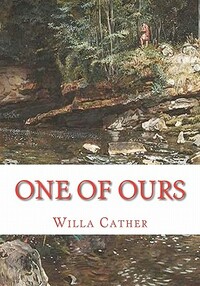Take a photo of a barcode or cover
adventurous
challenging
emotional
tense
slow-paced
Plot or Character Driven:
Plot
Strong character development:
Complicated
Loveable characters:
Yes
Diverse cast of characters:
No
Flaws of characters a main focus:
Yes
slow-paced
Plot or Character Driven:
A mix
Strong character development:
Yes
Loveable characters:
Complicated
Diverse cast of characters:
No
Flaws of characters a main focus:
Complicated
emotional
reflective
sad
slow-paced
Plot or Character Driven:
A mix
Strong character development:
Yes
Loveable characters:
Yes
Diverse cast of characters:
No
Flaws of characters a main focus:
Yes
I started out enjoying this one and just lost interest once Claude joined the army.
Beautiful, sad, hopeful, tragic. All handled so tenderly. I’m going to read more by this author.
There is nothing dated about the topic. A young man trying to figure out what he really wants from life, struggling to separate himself from what his parents, hometown etc expect. The pointless loss of war. Unrequited love. There is nothing not to love (and want to mother) about Claude.
There is nothing dated about the topic. A young man trying to figure out what he really wants from life, struggling to separate himself from what his parents, hometown etc expect. The pointless loss of war. Unrequited love. There is nothing not to love (and want to mother) about Claude.
Willa Cather's Pulitzer winning novel about a young farmer boy from the heartland of the U.S. and his going off to fight in The Great War is, as usual for Cather, beautifully written. Cather has a lovely easy and measured style that is on full display in this story. The positive of this style is its lyricism. Reading Cather is like watching a slow motion, panoramic film shot of a beautiful sunset on lush corn fields in the Great Plains that is remarkable and breathtaking in its aesthetic, but doesn't say much more in the way of narrative beyond this slow-moving scenic aesthetic. Think of a sweeping, non-verbal nature scene in the movie "A River Runs Through It" or "Dances With Wolves" and you can begin to get a sense of what it is like to read a Cather novel. The negative side (at least to me) is that it's deliberately slow-paced and can be tedious. This particular novel is not Cather's best work, but it's a fair representation of her talent as a writer.
That said, this particular story, for all its beauty, is not very well put together as a story. To me it seemed more like a collection of loosely related short stories than a coherent novel. The protagonist, Claude Wheeler, is the glue that keeps the stories together in the sense that they are all about moments in his life, but the connections between these moments to make a coherent whole just aren't really there. Claude's college life, his failed marriage, his transport overseas to the battlefield, and his actual experiences on the battlefield are all intriguing glimpses into Claude's person, but they just don't hold together well. One wonders what ever became of the Ehrlich family? Or what ever happened to Enid or Gladys? Or what was the significance of such a detailed description of the epidemic sickboat journey from the U.S. to France? And the last chapter, a patriotic poetic tribute to WWI veterans, as touching as it is, was just completely out of place in the storytelling style of the rest of the novel.
Yes, I enjoyed the book; and I would recommend it as a good contemporary reflection on the character of the US and its youth who fought in WWI during this period in U.S. history. I think it won the Pulitzer, though, not on the basis of its being great literature (because it's not, and it's not even close to Cather's best), but because it's a bit of a WWI hagiography published at a time when people were looking to celebrate its idealistic WWI young soldiers in a post-WWI moment of grief and reckoning at the losses of this war.
That said, this particular story, for all its beauty, is not very well put together as a story. To me it seemed more like a collection of loosely related short stories than a coherent novel. The protagonist, Claude Wheeler, is the glue that keeps the stories together in the sense that they are all about moments in his life, but the connections between these moments to make a coherent whole just aren't really there. Claude's college life, his failed marriage, his transport overseas to the battlefield, and his actual experiences on the battlefield are all intriguing glimpses into Claude's person, but they just don't hold together well. One wonders what ever became of the Ehrlich family? Or what ever happened to Enid or Gladys? Or what was the significance of such a detailed description of the epidemic sickboat journey from the U.S. to France? And the last chapter, a patriotic poetic tribute to WWI veterans, as touching as it is, was just completely out of place in the storytelling style of the rest of the novel.
Yes, I enjoyed the book; and I would recommend it as a good contemporary reflection on the character of the US and its youth who fought in WWI during this period in U.S. history. I think it won the Pulitzer, though, not on the basis of its being great literature (because it's not, and it's not even close to Cather's best), but because it's a bit of a WWI hagiography published at a time when people were looking to celebrate its idealistic WWI young soldiers in a post-WWI moment of grief and reckoning at the losses of this war.
This is a book best read in long sittings, because that is what truly does justice to Cather's narrative and mood.
slow-paced
Moderate: War
lighthearted
reflective
relaxing
slow-paced
Plot or Character Driven:
Character
Strong character development:
Complicated
Loveable characters:
Yes
Diverse cast of characters:
No
Flaws of characters a main focus:
No
adventurous
emotional
hopeful
informative
inspiring
reflective
sad
slow-paced
Plot or Character Driven:
Plot
Strong character development:
Yes
Loveable characters:
Complicated
Diverse cast of characters:
No
Flaws of characters a main focus:
Yes
I love Willa Cather, and have read many of her books. But I did not love this one. It was slow to develop and didn't seem to get interesting until the last 25%of the book. Then it got very good. At first Claude seemed pretty wishy washy as to what he wanted out of life. I will remember this book, but as I've said, it was not my favorite.






